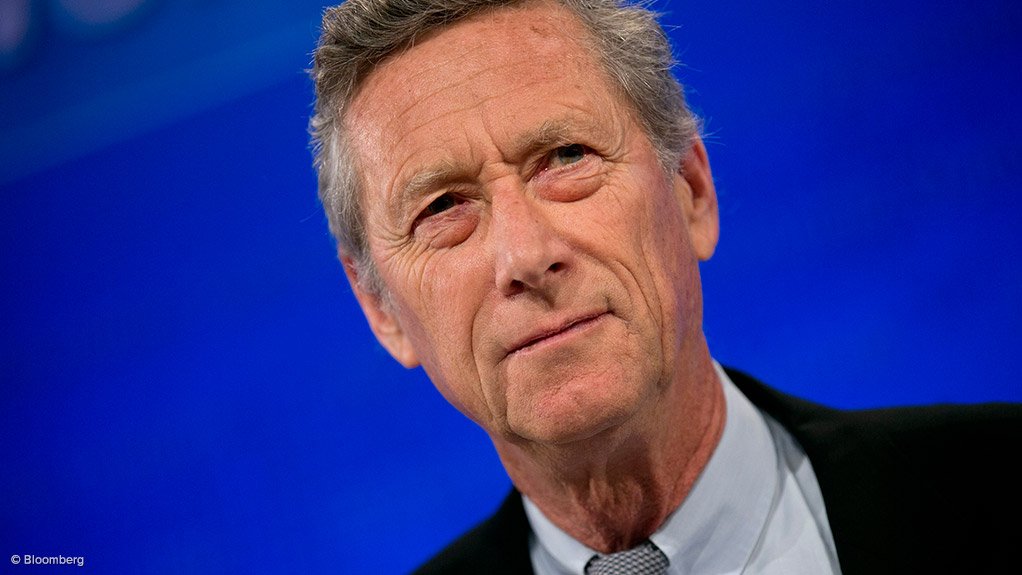The International Monetary Fund (IMF) has once again lowered its 2014 growth forecast for South Africa to 1.7%, having previously forecast that Africa’s second-largest economy would expand by 2.3%.
The 0.6% downward revision, which is contained in the World Economic Outlook (WEO) Update, released in Mexico City on Thursday, is also well below the 2.8% projection outlined by the IMF for South Africa in 2013. However, its 2.7% growth projection for 2015 was maintained.
The new figure is in line with the 1.7% forecast released recently by South African Reserve Bank Governor Gill Marcus. The reserve bank’s July 17 downward revision was its second for the year, having initially been published as 2.8% at the start of 2014, before being lowered to 2.1% and now to 1.7%.
The IMF revision came against the backdrop of a marginal lowering of its forecast for global growth in 2014, from 3.7% in April to 3.4%. However, the outlook for sub-Saharan Africa was sustained at 5.4%.
Finance Minister Nhlanhla Nene – who has already indicated that the economy is unlikely to grow by the 2.7% forecast by his predecessor, Pravin Gordhan, in February – will provide the National Treasury’s revised outlook during his Medium-Term Budget Policy Statement address in October.
However, it appears that South Africa could struggle to meet even the weak 1.9% growth of 2013, mainly as a result of a protracted strike in the platinum industry, which has been followed by a strike in the metals and engineering sector. The platinum-sector strike was blamed for the economy’s 0.6% first-quarter contraction, when the mining sector contracted by around 25%.
Some commentators believe it could be difficult for South Africa to avoid descending into a “technical recession”, as measured by two consecutive quarters of decline. South Africa last experienced a recession in 2009, which came as a direct result of the global economic crisis. However, domestic factors are currently the main cause of economic underperformance.
In releasing the WEO Update IMF economic counsellor Olivier Blanchard said the “recovery continues, but it remains a weak recovery”.
“Advanced economies are still confronted with high levels of public and private debt, which act as brakes on the recovery. These brakes are coming off, but at different rates across countries.
“Emerging markets are slowing down from precrisis growth rates. They have to address some of their underlying structural problems, and take on structural reforms. At the same time, they have to deal with the implications of monetary policy normalisation in the US,” Blanchard said.
The IMF said a growth rebound was under way in the US as temporary constraints waned. It projected that the US economy would grow by 1.7% this year, or 1.1% lower than its April forecast. Growth in the euro area was expected to strengthen to 1.1% in 2014, while the IMF revised upwards its growth outlook for Japan to 1.6%.
In emerging market and developing economies, growth was now projected to decelerate to 4.6% this year, with the outlook for China having been cut by 0.2% from the April projection to 7.4%.
“Our largest downward revision, relative to our WEO April forecast, is for Russia, where we have revised growth for 2014 from 1.3% to 0.2%, and for 2015 from 2.3% to 1%,” Blanchard reported.
The change related mainly to a deterioration of business confidence in Russia, which had been aggravated by geopolitical tensions. “The result has led to large capital outflows, and a near freeze in investment decisions.”
Blanchard said emerging and developing economies faced the twin challenge of needing to implement reforms to rebalance their economies and strengthen their growth, while adapting to a changing world environment.
“This change has already started. The recovery in advanced economies implies increased demand for their exports. The normalisation of monetary policy in the US, however, implies that some of the capital flows that went to emerging markets in search of higher returns will eventually return home.”
The implications were tighter financial conditions and a tougher financial environment. “Foreign investors are less forgiving, macroeconomic weaknesses are more costly. And financial bumps, such as those we saw in May 2013, may well happen again,” Blanchard warned.
EMAIL THIS ARTICLE SAVE THIS ARTICLE
To subscribe email subscriptions@creamermedia.co.za or click here
To advertise email advertising@creamermedia.co.za or click here











